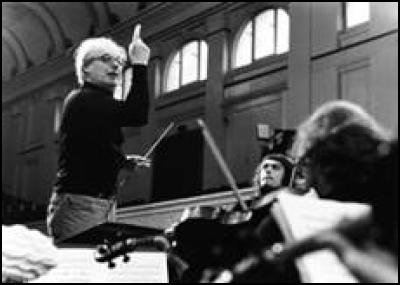Mastery, Purpose and Autonomy
04 June 2014 by Marc Taddei
A lot of the books I read are specific to music – historical, theoretical and interpretive books seem to loom large in my collection. Some are easier to get through than others! For instance, riveting tomes such as Hermann Helholtz’s “On the Sensations of Tone” and Jean-Pierre Marty’s, “The Tempo Indications of Mozart” are guaranteed to cure insomnia! Books such as these have clear benefits to making music but quite often I also read books that are directed to corporate management. Many of these books are great, while others, such as a few by Jack Welch, I vehemently disagree with. One book that I am currently reading and am in complete agreement with is Daniel H. Pink’s “Drive” . This is a book that suggests that money is not the primary motivator of performance. “Carrots and Sticks” certainly are not as effective as many would think, either. He speaks of three elements of motivation – purpose, mastery and autonomy.
This gels with any musician’s experience that I have ever met. We don’t spend countless and often infuriating hours in a practice room because we wanted a paycheck. We did so because we love music and understood that the goal of our endeavors was to approach mastery – any success that we get is only a by-product of our application.
Purpose is also an easy one for musicians. To be able to work in an art form that gives back not only to the practitioner but also has a profound effect on society is an extraordinary privilege.
Finally there is autonomy. This may seem to be a more vexed issue for conductor-lead orchestras but my view is that artistic empowerment and autonomy should be nurtured. While it seems that scores, strict rehearsal hours and conductors will work against this concept, in fact there is plenty of autonomy at work in orchestras. By virtue of the suggestive nature of conducting, musicians have to interpret and play together. During gaps in rehearsals, musicians are hugely self-motivated to improve matters of musical integrity. Conductors understand this and quite frankly, this work always brings about improvement. The recently deceased Maestro, Franz-Paul Decker said, “One makes music with musicians not against them”. Presenting musicians with an environment in which to work effectively is my number one goal in rehearsal.

I’ve been thinking quite a bit about this inspirational figure in my musical life since his passing. By coincidence, Orchestra Wellington was performing a programme that Franz-Paul would have reveled in – the Wesendonck Lieder (with the magnificent Deborah Humble), Bruckner’s 7th symphony and Haydn’s 84th symphony!
This year we are performing a cycle of the Haydn Paris symphonies – a brilliant example of the great composer’s works at the height of his powers. They are also a brilliant example of just what a difficult job the first violins have! Without question, the firsts are presented with the greatest challenges of any section in the orchestra.
Taking a leave from Decker and also Daniel H. Pink’s book I decided to give the firsts greater autonomy and scheduled a sectional for them – an opportunity for the section to come to grips with the programme by themselves.
I was expecting a modest improvement, mainly around equanimity of stylistic approach but what I got was a transformative improvement (beyond the already high level of the first rehearsal). Empowering the firsts by providing the autonomy to allow their mastery to manifest itself as a cohesive unit was a powerful example of what Daniel H. Pink writes about. It was also a reminder of the wisdom of the great Franz-Paul Decker.
